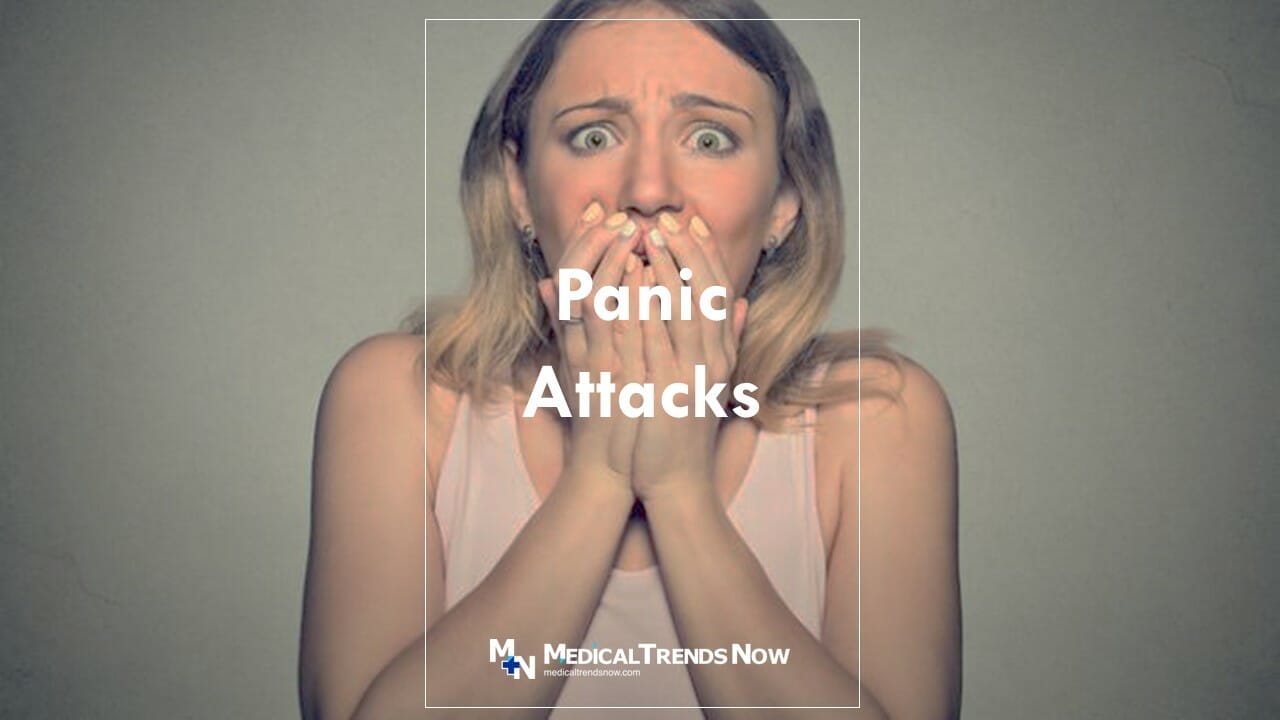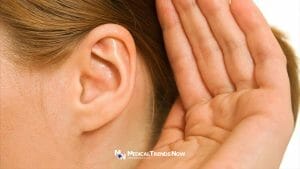Table of Contents
Do you know the feeling of your heart racing, shortness of breath, and feeling like you’re going to pass out? You might be having a panic attack. Panic disorder can be really scary, but there are some things you can do to help yourself. Here are some ways how to tell if you have a panic attack.
What is a Panic Attack?
A panic attack is a feeling of sudden and intense fear. This fear can be so overwhelming that it feels like you have a heart attack, are losing control, or even dying. Panic attacks can happen at any time, and they often come out of nowhere. If you have ever experienced an attack, you know how frightening it can be. But what exactly is a panic attack?
A panic attack is your body’s natural response to stress. When you feel threatened or overwhelmed, your brain triggers your fight-or-flight response. This response is designed to help you protect yourself in dangerous situations. But sometimes, this response is triggered even when there is no real threat. When this happens, it can cause physical symptoms like a racing heart, shortness of breath, and trembling.
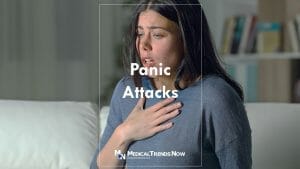
The Physical Symptoms of Panic Attacks
When most people think of a panic disorder, they think of the mental symptoms: heart racing, feeling like you can’t breathe, feeling like you’re going to die. But there are also physical symptoms that can be just as debilitating. Here are some of the physical symptoms of a anxiety disorders:
- Heart palpitations. This is probably the most common physical symptom of a panic attack. Your heart starts pounding in your chest, and it feels like it’s going to beat out of your chest. This can be very scary and make it hard to catch your breath.
- Chest pain. This is usually a sharp, burning pain in your chest that can make it feel like you have a heart attack. It’s caused by the tightness in your chest from the anxiety and can make it hard to breathe.
- Shortness of breath.
You may also feel lightheaded or dizzy, and you may get an upset stomach or feel like you need to vomit. These physical symptoms can be frightening, but they are not harmful. If you think you have anxiety disorders, try to stay calm and breathe slowly and deeply.
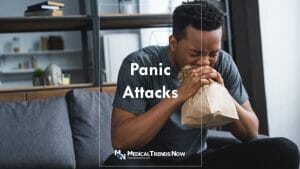
The Mental Symptoms of Panic Attacks
When you have a panic disorder symptoms, you may feel like you’re losing control. Your heart races, your breathing speeds up, and you may even feel like you’re dying. These physical symptoms are only part of the problem. The mental symptoms of anxiety disorders can be just as debilitating.
You may feel like you’re going crazy. Your thoughts may race and become jumbled. You may have trouble thinking straight or focusing on anything other than the attack. You may even believe that you’re about to die or that something terrible is going to happen to you.
These mental symptoms can make it difficult to function in your everyday life. You may avoid places or situations that trigger your anxiety disorders. You may miss work or school, socialize less with friends and family, and generally withdraw from life.
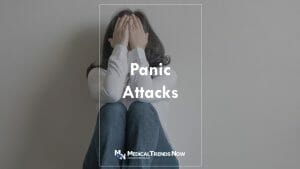
Causes: What Can Trigger Panic Attacks?
A panic disorder is a sudden episode of intense anxiety and fear. The exact cause of panic attacks is unknown, but they may be triggered by a variety of factors. For some people, it may be a specific event or situation, such as public speaking or being in a crowded place. For others, it may be more general, such as anxiety about their health or finances. And for some people, there may be no clear trigger at all.
Whatever the cause, a panic disorder can be a very frightening experience. Symptoms can include rapid heartbeat, chest pain, shortness of breath, sweating, trembling, and feeling dizzy or faint. If you have ever experienced a panic attack, you know that it can come on suddenly and without warning.
If you are prone to anxiety disorders, there are things you can do to help prevent them. Identifying your personal triggers is the first step.
Some people experience anxiety disorders after experiencing a traumatic event. Others may have panic disorders due to stress or anxiety from everyday life. There may also be a genetic component to panic disorder, as it often runs in families.
Most people who experience panic attacks do not have any underlying medical condition. However, some medical conditions can contribute to the development of a panic disorder, such as an overactive thyroid gland or heart disease.
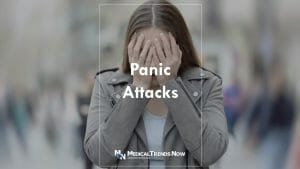
Who is at Risk of Getting Panic Attacks
Panic attacks can happen to anyone, but there are certain groups of people who are more at risk. People with anxiety disorders or who have a family history of panic attacks are more likely to experience them. Other risk factors include stress, trauma, and certain medical conditions.
People with anxiety disorders are more likely to have anxiety disorders than people without anxiety disorders. Anxiety disorders include conditions such as generalized anxiety disorder, social anxiety disorder, and post-traumatic stress disorder.
People who have a family history of panic attacks or other anxiety disorders are also more likely to experience them. This may be due to genetic factors or to learned behaviors from observing family members with anxiety disorders.
Finally, people who use certain substances, such as alcohol or cocaine, are also at increased risk for anxiety disorders. This is because these substances can act as triggers for the attack.
If you think you might be having a panic attack, it’s important to seek medical help right away.
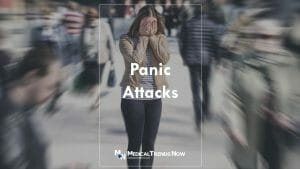
Treatments
When you have a panic disorder, it can be hard to tell what’s going on. You might feel like you’re losing control or that you’re going to die. These feelings can be so intense that they might make it hard to breathe. But there are some things you can do to ease your symptoms and get through the attack.
But anxiety disorders are not life-threatening. In fact, with the right treatment, they can be completely cured.
First, try to focus on your breathing. Take deep, slow breaths and count to four as you inhale and exhale. This will help slow down your heart rate and calm your nerves.
Second, remember that the feeling is only temporary. It may seem like it’s never going to end, but eventually, it will subside. Focus on the fact that it will end and that you’ll be okay.
Try to focus on something else, like a favorite memory or activity. This can help take your mind off of the panic attack. Lastly, if you have someone with you, ask them for support and reassurance.
Finally, try to relax your body as much as possible. If you’re tense, your panic attack will only get worse.
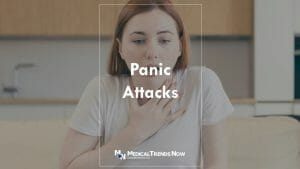
Natural Remedies For Panic Attacks
There are many natural remedies that can help to ease the symptoms of a panic disorder. Some of these include herbs such as chamomile, passionflower, and lavender. There are also essential oils that can be helpful, such as bergamot, lemon, and rosemary. In addition to these, there are also some homeopathic remedies that can be effective.
Prevention
There are several things you can do to prevent panic attacks. First, it’s important to identify your triggers and try to avoid them. If you know you start to feel anxious in large crowds, for example, try to avoid situations where you’ll be around a lot of people.
Second, it’s helpful to have a plan in place in case you do start to feel panic symptoms coming on. This might include deep breathing exercises or other relaxation techniques. Knowing what you’ll do ahead of time can help you feel more in control and less panicked.
Talk to someone who understands. Sometimes just talking to someone who understands what you’re going through can be helpful in itself.
Finally, don’t be afraid to ask for help if you need it. There are many resources available to help people who suffer from anxiety disorders, so don’t hesitate to seek out professional help if you need it.
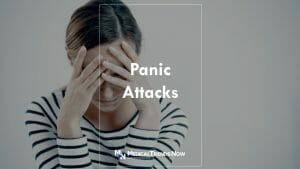
When To Visit A Doctor For Panic Attacks
When it comes to panic disorder, many people are unsure of when to seek professional help. After all, everyone experiences anxiety from time to time- so how do you know when it’s something more serious?
Here are a few signs that it may be time to visit the doctor for your anxiety attacks:
- You’re experiencing panic attacks more frequently. If you have panic attacks more than once a week, it may be time to see a doctor. This is especially true if the frequency of your attacks is increasing.
- The intensity of your panic attacks is increasing. If you find that your anxiety attacks are becoming more intense and lasting longer, this is also a sign that it may be time to seek professional help.
- Your panic attacks are impacting your daily life.
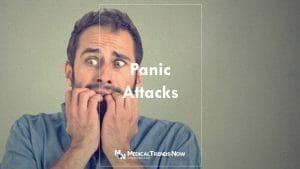
Which Doctor Can Treat Panic Attack
When a person experiences a panic attack, it can feel like the world is ending. The chest pain, shortness of breath, and racing heart make it hard to think straight. It’s natural to wonder which doctor can help treat an anxiety attack.
The first step is to visit a primary care physician to rule out any physical causes of the symptoms. If the doctor finds no medical reason for the panic attacks, they may refer the patient to a psychiatrist or psychologist. These mental health professionals are trained in diagnosing and treating anxiety disorders.
Psychiatrists and psychologists use different methods to treat panic disorder, but both approaches usually involve some form of talk therapy and medication. Talk therapy helps patients understand and manage their anxiety, while medication can help reduce the frequency and severity of anxiety attacks.
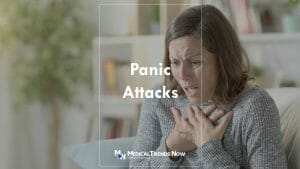
Conclusion
In conclusion, it is important to be aware of the symptoms of a panic disorder so that you can identify one if it occurs. If you experience shortness of breath, chest pain, dizziness, or a fear of dying, these may be signs that you have a panic attack. If you think you have an anxiety attack, it is important to seek medical attention so that you can receive treatment.
Resources
- Panic attacks and panic disorder – Symptoms and causes – Mayo Clinic
- Panic Disorder, Anxiety Disorder, Symptoms, Causes – Cleveland Clinic
- Panic Attacks and Panic Disorder – HelpGuide.org
- How to deal with panic attacks | NHS inform
- Panic Disorder: When Fear Overwhelms – NIMH
- Panic attack – Better Health Channel
- Panic disorder – NHS
- What is a panic attack? – Mind
- Panic Disorder | Johns Hopkins Medicine
- Medications for Treating Panic Disorder – Verywell Mind
- Panic Disorder: Effective Treatment Options – American Academy of Family Physicians AAFP
- Treatment of panic disorder – Australian Prescriber
Disclaimer
This website is intended to educate both members of the general public and those working in the medical field on the prevalence, causes, and methods for preventing, diagnosing, and treating diseases that affect people throughout their lives. This website’s content is provided solely for informational reasons and is not meant to serve as a substitute for the advice of a qualified medical practitioner.

